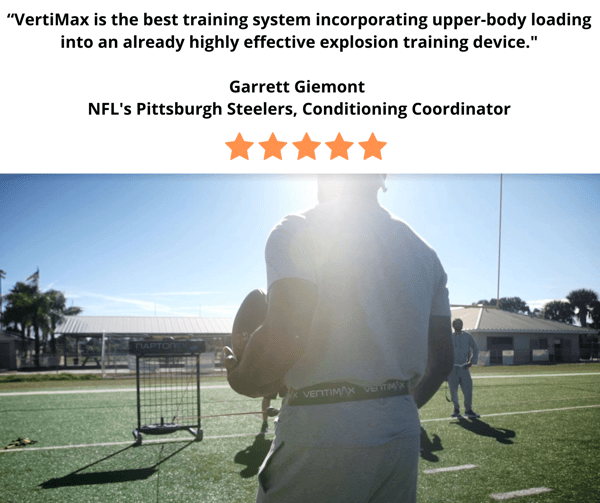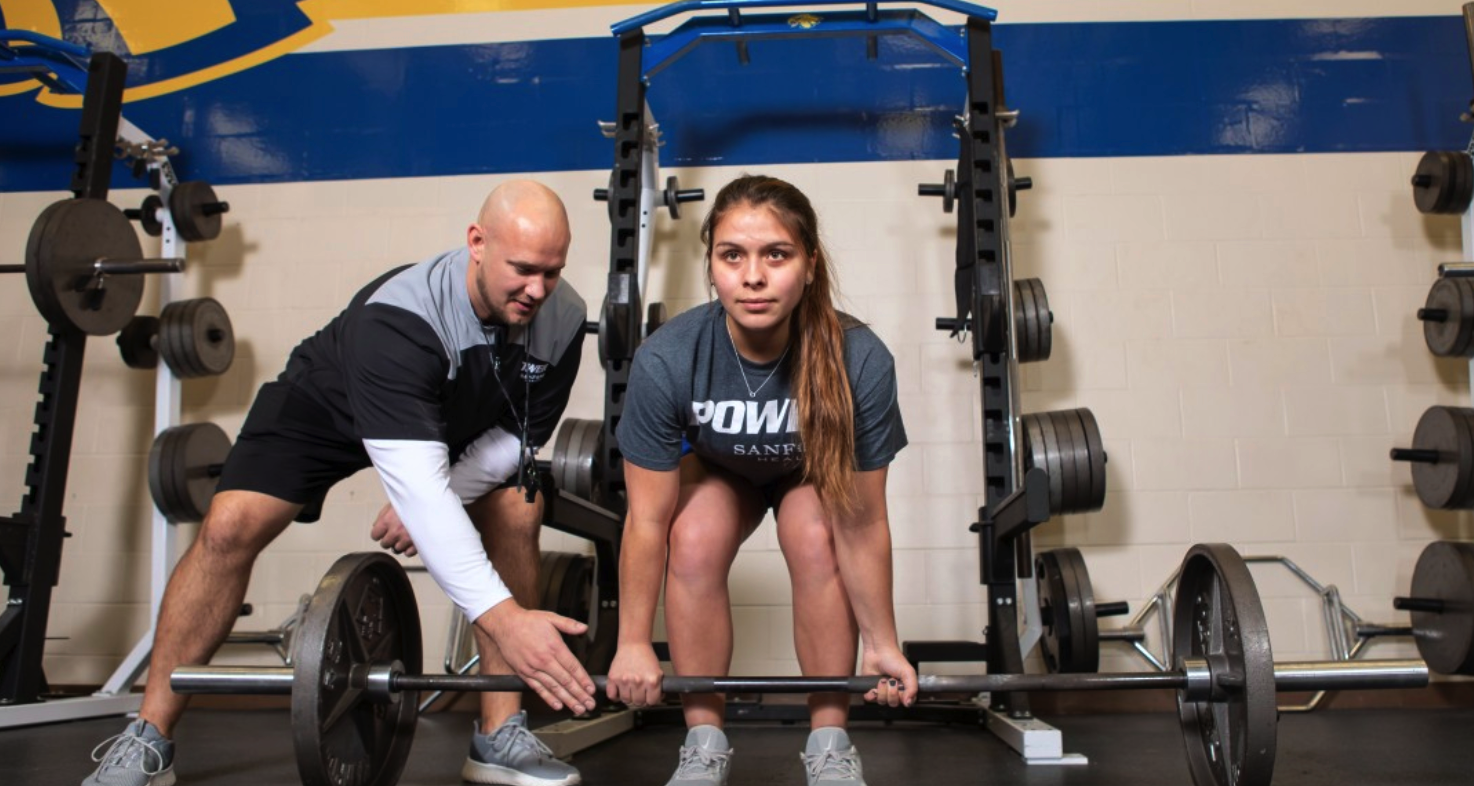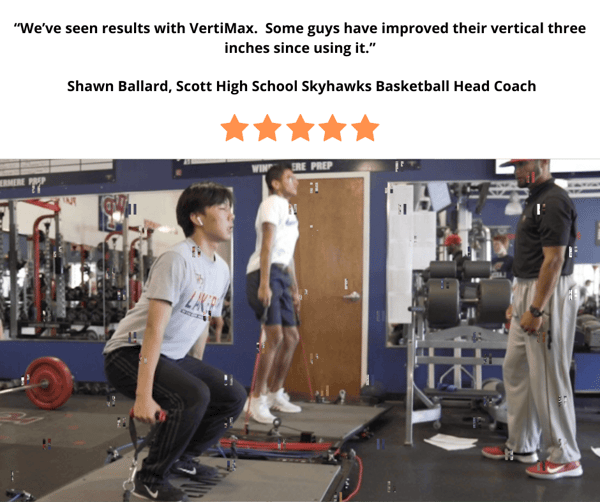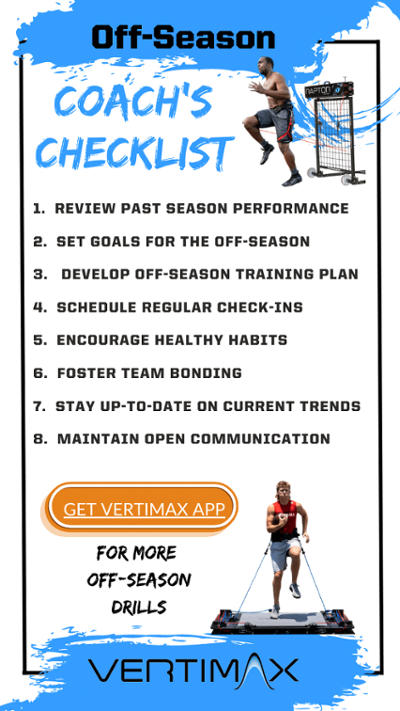Believe it or not, the community of high school strength and conditioning coaches is very small and unfortunately not all high schools have designated strength and conditioning coaches. With just about any position in any career, it takes a lot of experience, failure, trial and error, and practice to be considered one of the best coaches.
Check out these tips from your coaching peers.
- “What is the best advice you received as high school strength and conditioning coaches?
- What advice would you give to brand new high school strength and conditioning coaches?”
One of the best attributes of the coaching community is that they love to share their experience and knowledge with everyone and anyone looking to learn.
9 Tips for Strength and Conditioning Coaches
1. Communication
This advice here applies to any coach. A lot of time coaches focus on providing coaching/instruction, but don’t take the time to listen to their athletes. Eamon O’Liddy is the Director of Strength and Conditioning for Georgetown Preparatory School in Maryland. “The best advice I received as a coach has been to listen more than talk. It's great to bring energy and provide feedback, but if it's interfering with your athletes ability to process their movements, take a back seat and listen to what your athletes are telling you. From there I believe that as coaches we are able to provide a much cleaner line of communication”.
2. Importance of Relationships
This is very important for a new coach or anyone who just likes to put their head down and work. It’s not always that easy and building relationships can go a long way for anyone and especially when you’re a high school strength coach. Kevin O’Neil is the Director of Strength and Conditioning for The Noble and Greenough School in Massachusetts. “Realize the importance of relationships. You’ll need to form relationships with a wide variety of folks”. Coach O’Neil goes into more detail with each category of relationships at the high school level.
- Administration: (Head of School, Principals, Athletic Directors, etc.). This is the leadership of your school. You want to know them, you want them to know you, and you want them to like you.
- Medical Personnel (ATCs, PTs, Doctors, etc.). When injuries and other medical situations arise, you will need to collaborate with other professionals to ensure the student returns to health. This could range from on campus staff such as athletic trainers and nurses to off campus personnel including doctors and physical therapists.
- Coaches: We have 27 varsity head coaches and about another 100 assistant, junior varsity, freshman, and middle school coaches in our athletic department. They all need to feel comfortable contacting me regarding their team’s S&C needs. If I am difficult to deal with these relationships won’t work and the students will be the ones who ultimately suffer the consequences.
- Parents: You need to make yourself available and willing to communicate with all parents and show them you always have their child’s best interest in mind.
- Staff: (Building and Grounds, Custodians, Food Services, etc.). Don’t be stupid. Never alienate people that can help you fix things, help you clean things, or feed you.
- Students: Building relationships with the students is huge. You need to know their schedules, likes, dislikes, goals, personality, strengths, struggles, etc. They also need to know you care about them. This can’t be done without building a good relationship with them.
3. Strength and Conditioning is More than Just Getting Stronger
Yes, you may have your USAW1 and have been running a strength camp for football players every summer, but strength and conditioning is more than just lifting weights. Justin Contois the Health and Physical Education Teacher at Osbourn Park High School in VA. "Being all encompassing of all things wellness is important.
Yes, S&C deals with lifting and getting stronger, but what about the nutritional component, the mental aspect, the recovery process, the rehab process after an injury. Before my teaching and coaching days, I was a personal trainer at a local fitness center. Sometimes, I felt I was less a trainer and more psychologist because many of my clients just want to talk about their day, lives or relationships. Again, this goes back to creating the bond and relationship will all involved in the process.”
4. Use Your Peers as a Resource
There has always been someone who has had the same issue you have now so instead of reinventing the wheel? Reach out to your peers for advice.
“Just because you know strength and conditioning doesn’t mean you know high school strength and conditioning."
Strength and Conditioning Coach Tobias Jacobi from Strong Rock Christian School in GA
Every single high school situation is different and it takes a wise coach to navigate successfully” and Coach Jacobi learned the realms of high school strength and conditioning by “Learning from other high school strength and conditioning coaches, connect as much as possible with other high school strength and conditioning coaches. This helped me the most making the transition from the college setting to the high school setting.”
Matt Ely the Director of Sports Performance for Mount Paran Christian School in Georgia adds “ I would definitely not try and come up with my own “system” right off the bat. I tried to come up with my own stuff instead of just taking programming that was tried-and-true and making it fit my athletes and situation. It’s always comical to me to go back and look at what I did 12 years ago compared to now. It looks totally backwards. It took me a while to learn that simple is always the most effective. Any young strength and conditioning coach that reaches out to me today I always tell them to read and watch every bit of material they can get their hands on and go meet face-to-face with anyone who will open their doors. Take all that info and whittle it down to what you knew, what you didn’t know but now know, and what you want to learn more about. Then you can begin making your own “system”.

5. Empower Your Athletes
When you empower someone they become personally invested and accountability improves. Yes, you’re a strength and conditioning coach, but you’re also a leader and as a leader it’s your job to create an environment where your athletes and kids can learn. Tom Caruso is the Wellness Director/Strength Coach for Providence Day School in North Carolina. “The best advice I have received as a high school strength and conditioning coach is to provide opportunities in the weight room for the students and student-athletes to lead and take ownership of their workouts. There are many things that have to be done a certain way for safety in the weight room but I have found that empowering my students and involving them in the planning of their workouts has improved the participation and energy in the workouts.”
6. “Slow Cooking” vs. “Microwaving”
One of my favorite pieces of advice on the outside of the strength and conditioning world. I’ve written about this before in “Are You Building or Breaking Athletes?” Coach Kevin Smith is the Strength and Speed Coach at Belton-Honea Path High School in South Carolina. “The advice I would give a new S&C Coach would first be to understand you are 'slow cooking ' athletes not 'microwaving" them. A lot of coaches will look to College programs and want to copy it. 'Well this teams wins games so their strength program has to work, right?" Wrong. High school and college are apples and oranges.At the high school level, you have a wide variety of athletic levels.Dealing with high school kids, you have tons of structural problems; ankle mobility, shoulder mobility, and most often a terrible posterior chain.You have to teach the very basics like a body weight squat and a hip hinge before you could think about loading kids like that. If an athlete can't control or move his own body weight how can you expect him to move a greater load plus his body weight?”
7. Control Only What You Can
Marcus Taylor is the Strength and Conditioning Coach at Gonzaga College High School in Washington, D.C who talks about controlling only what you can control. “The best advice I have been given was to "Control only what you can control". I control the schedule, I control the programming of the lifts, I can control myself and attitude, and I can control how the culture is created. I work with the kids that show up and want to get better but if a kid is flaky on showing up then I can't control him. He has to answer to his teammates and coach.”
8. Educate Others on Strength and Conditioning
An easy to entry and forming relationships is to educate staff, parents on the importance of a strength coach. Head Sports Performance Coach Grant Stewart at Mullen High School in Colorado says “take the time to explain to people exactly what you do and why you do it. Strength & conditioning at the high school level in 2019 is not writing sets & reps on the whiteboard and sitting down at your desk. S&C coaches must show everyone in the school that they are professionals with what they do and our positions are vitally important for protecting the well-being of student athletes”.
To expand more on the education surrounding strength and conditioning at Windermere Preparatory School in Florida the the Director of Sports Performance Micah Kurtz adds “Today's youth and their parents want to know the why behind what they are doing. Make sure you can clearly and concisely explain your training philosophy. Have a clear and laid out set of rules, responsibilities and roles within your program. Have clear, concise and communicated standards for how your students and athletes will be assessed and how they will succeed in your program. Be able to explain why your students and athletes should follow you (hint: it should not just be because of your title or experience.)”
9. Be Open Minded, Be Flexible
Just think about how much information has changed over the past 5 years in strength and conditioning. Matt Korman is the Director of Strength and Conditioning at Charlotte Christian School in North Carolina. He says “ Be flexible. Not from a muscular standpoint, but from a philosophical point of view. What you do now is very likely not exactly what you will be doing in five years, which will not be exactly what you do ten years from now. Many new coaches (including myself when I first started out) are very rigid with what they believe is the right or wrong way to train an athlete. It is important to provide the best programs you possibly can for your athletes but to have the humility to admit that you do not know everything. Strength and Conditioning is one of the most rapidly evolving industries. This does not mean that you need to compromise your training principles every time there is a new article or training philosophy. Be open-minded to new ideas and training philosophies, realizing they may have something to offer.
In the high school setting there are a lot of variables. Kids playing different sports, multiple sports, lots of time off so it can be very difficult to have a plan that never changes. Steve Kiely is the Head Strength and Conditioning Coach at Boston College High School in Massachusetts and he adds his insight “When I was a new teacher, and then a new strength and conditioning coach, I did what most new educators would do, look to the internet! I found helpful step-by-step, minute-by-minute lesson plans and strength programs that looked incredibly specific (I followed Wendler’s 5/3/1 to a T!). But that was part of the problem, they were too specific. I found myself locked in to a specific plan that didn’t apply to my teaching style, my students, my classroom, and what I thought were appropriate outcomes. Part of me growing as a teacher-coach and learning to lesson plan was focusing on the big teaching/training outcomes per unit (or phase), planning for potential modifications for all abilities (using progressions and regressions), and “calling an audible” if something out of my control were to happen (alter the training template)”.
Coaching Advice Summary
If you noticed in this article you’re not getting information on sets, lifts, and programming because that’s easy. Every qualified strength coach understands and knows how to get athletes strong! It’s more about human interaction and self-awareness! All of these coaches provided actionable and practical advice that every young coach needs to read and understand. Yes, some of this advice isn’t easy to implement because it takes experience, but If you take anything from this article, I hope it’s that you use your time to build relationships and don’t be afraid to seek out your peers for help, advice and guidance. The high school strength and conditioning coaching community is strong. Look into the NHSSCA (National High School Strength and Conditioning Coaches Association) and you’ll understand. #Family #NHSSCA






.png?width=110&name=Listing%20Image-basketball%20ladder%20drill%20%20(350%20x%20350%20px).png)














